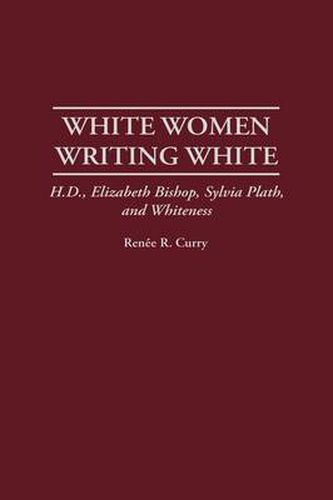Just as the cultural background of readers shapes how they respond to texts, the context in which writers live shapes what they write. When a context is dominant within a culture, the effects of that context upon an author may be taken for granted and thus overlooked. Race is a powerful factor in shaping literary works. Literature by black writers, for example, often reflects the experiences of African Americans. At the same time, though perhaps less obviously, literature by white writers may similarly reflect the experience of being white. This book argues that H.D., Elizabeth Bishop, and Sylvia Plath wrote from an unproclaimed dominant white perspective that becomes evident in their poetry.
Loosely delineated, writing white constitutes writing authored from an acknowledged or unacknowledged white perspective; writing that implies or explicitly delivers the concept of whiteness to a text; writing that remains unconcerned with white racial politics internal and external to the text; and writing that uses the word white to maintain ideological systems of mastery and dichotomy. This book examines numerous poems in terms of whiteness. Each chapter places one poet in the larger context of historical and cultural racial events prevalent during the time of her writing and explores the particular poems created and published during that period.





